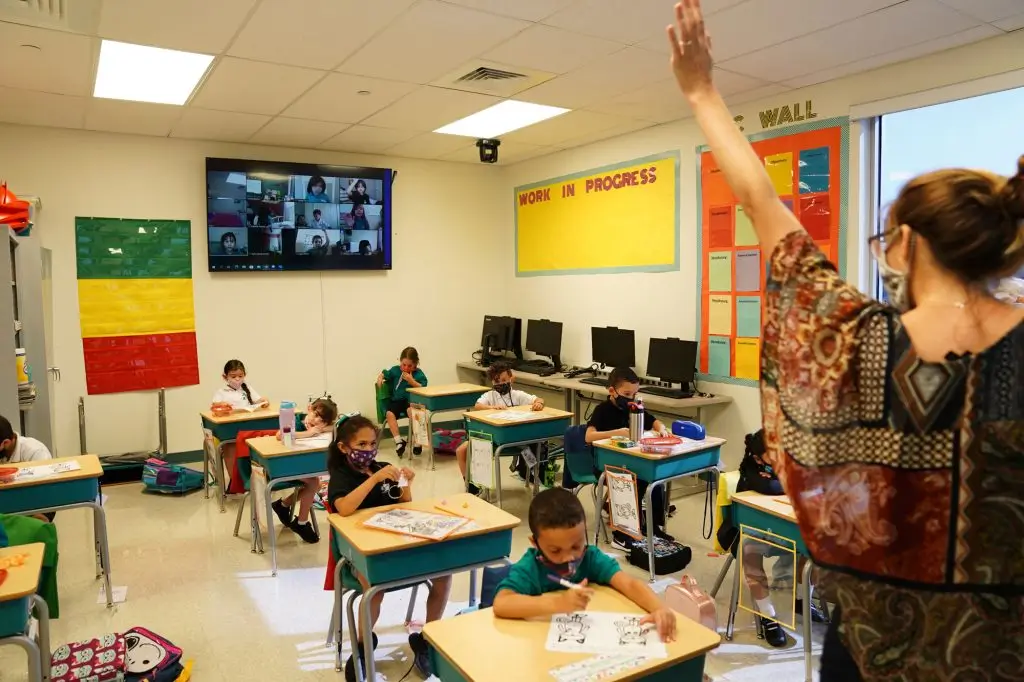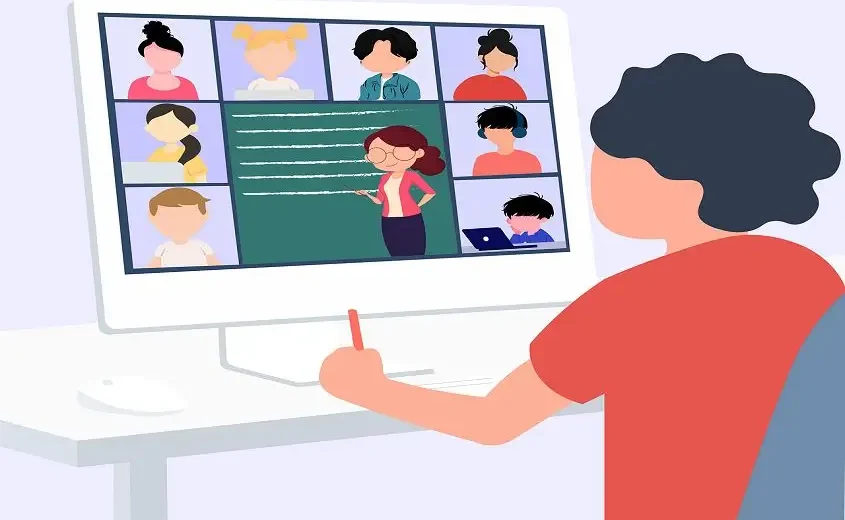Education is changing as the conventional classroom is starting to be replaced by innovative, dynamic ways of learning. One of the innovations which is getting traction is the idea of Colegia. The term is usually used to describe the concept of collective intelligence and collaborative spaces; Colegia is reshaping the ways we consider education. What exactly is Colegia? What is its significance, and how crucial is it for the future of education? In this article, we’ll explore the idea of Colegia and explore its advantages and challenges, as well as examine the ways it is changing the traditional model of education.
What is Colegia?
At its heart, Colegia is an educational approach that emphasizes collaboration in learning, sharing of knowledge, and the development of communities. It’s not about sitting in a classroom learning from the teacher. It’s about creating learning spaces where students can interact as they share ideas and work together to solve problems. The term “Colegia” is derived from the concepts of “community” in addition to “collaboration,” embodying an environment where learning is seen as a team endeavour rather than an individual endeavour.
Colegia can be manifested in many ways. The space could represent a physical space that is designed to foster group learning, or it could be an online platform where students from all over the world gather to learn, share and develop. In most cases, it’s a mix of both and combines the best features of traditional learning with the versatility of digital technologies. The value of Colegia is its flexibility in addressing the requirements of various students and learning environments.
The Principles of Colegia: A New Approach to Learning
What sets Colegia apart from conventional educational systems is its core principles. Here’s a list of the key elements that make up this new approach to learning
1. Collective Knowledge Sharing
There is no longer a time when the education system was only a two-way process. In Colegia learning, sharing knowledge is the underlying principle of learning. Instead of being passive students who receive information, they take part in their learning. They work with their students, engage in discussions, and create solutions to issues. This method helps to develop a greater understanding and makes sure that learning isn’t just about remembering facts but rather about acquiring analytical skills and practical problem-solving skills.
2. Fluid Learning Spaces
In Colegia, the lines between the physical and digital learning spaces are blurred. Classrooms in traditional settings are not the only place where learning can take place. With the rise of digital platforms and collaboration technologies, students can participate in their learning from any location and at any time. It doesn’t matter if it’s in the traditional classroom, office space or even from the comfort of their own homes, Colegia creates a learning environment that is able to adapt to the requirements and preferences of learners.
3. Personalized Learning Journeys
Each student is different and has different learning styles, interests, and paces. Colegio is aware of this and offers the opportunity to tailor learning experiences for each student. Instead of forcing every student to follow the same strict course, it allows students to pursue topics that are interesting to them at their own pace. This encourages students to learn on their own and allows students to own their learning experiences.
4. Community and Emotional Intelligence
Learning by yourself is becoming the past. In Colegia schools, students are taught to form a strong community that is supportive and tolerant. Emotional intelligence plays a major part in this process because students aren’t solely focused on academic achievement but also on developing interpersonal skills, empathy, and emotional resilience. The social component of Colegia ensures a healthy mental state and makes sure that students have the skills needed to succeed in their professional and personal lives.
More To Read: ez classwork
The Benefits of Colegia: Why It’s the Future of Education
The move to a more Colegia-style school offers a variety of advantages. Here are a few of the most convincing reasons that this model is set to revolutionize the future of education.
1. Enhanced Creativity and Innovation
Students who collaborate share different ideas and perspectives with the group. This diversity of thinking can spark creativity and innovation. When they are involved in collaborative problem-solving, students are able to explore the possibilities and come up with solutions they might not have thought of independently. This focus on collaboration is a reflection of how work gets carried out in the modern workplace, where innovation and teamwork are valued.
2. Improved Learning Outcomes
Studies have proven that students who participate in collaborative learning environments have better academic results. When students work together, they can better understand concepts, instruct each other and aid one another in overcoming obstacles. Peer-to-peer support helps to improve knowledge and retention of information and leads to improved overall performance in school.
3. Better Prepared for the Workforce
In our modern world, communication, teamwork, and collaboration are essential abilities in virtually every field. Colegia’s focus on collaborative learning helps students build these skills in a practical setting. Through working in teams in order to solve problems and complete assignments, students acquire communication and interpersonal skills that will be useful for their future careers.
4. Access to a Global Learning Community
One of the most appealing aspects of Colegia is the ability to connect students across the globe. Through online platforms, pupils do not need to be restricted by geography. They can interact with students who come from diverse nations as well as different cultures and backgrounds, expanding their perspectives and gaining a broader knowledge of our world. This promotes an understanding of inclusiveness and can help in breaking down the barriers in education.
5. Increased Motivation and Engagement
Traditional educational systems often depend on standardized curricula that could leave students feeling bored. On the other hand, Colegia offers a more engaging, interactive learning experience. The possibility to share ideas, collaborate and complete projects with other students increases motivation and enthusiasm, which makes learning more satisfying and enjoyable.
How Colegia Is Transforming Traditional Education
Traditional education models have long been dominated by exams, lectures and memorization by rote. Although these techniques are useful, they do not always facilitate the type of deep and relevant learning that students require in the present day. Colegio is an innovative alternative.
1. Shifting the Role of the Teacher
In Colegia, Teachers are not the sole source of knowledge. Instead, they are facilitators, guides, and mentors. They help create the right environment that encourages learning and assists students in collaborating and thinking about solutions. This shift in the position of teachers is a huge contrast to traditional education, in which teachers are typically considered to be the primary authorities.
2. Fostering Lifelong Learning
Colegio promotes a philosophy of continual learning. Since the emphasis is on self-directed learning, collaboration, and the pursuit of knowledge, Students are more prepared to keep learning even after leaving the classroom. This is particularly important in our rapidly changing world, where it is essential to be able to adjust and develop new skills, which is vital to the success of a student.
3. The Role of Technology in Collegiate
Technology plays an integral aspect in making Colegia possible. Through online tools that enable collaboration and the use of digital tools that enable customized education, the use of technology provides flexibility, which is crucial to Colegia. Artificial Intelligence (AI) and machine learning are becoming integrated into learning tools that allow the development of individualized learning paths for students according to the strengths and weaknesses of their students and areas of interest.
Challenges and Criticisms of Colegia
Although the idea of Colegia is thrilling, it’s not without problems. A few of the possible drawbacks are:
1. Unequal Participation
In a group setting, it is not always possible for all students to participate equally. Certain students may play an overt role, and others might be less active. This could result in a lack of balance in the learning experience. To prevent this from happening, educators need to create systems that promote the participation of all students and ensure every voice is heard.
2. The Need for Teacher Training
In order for Colegia to be successful, educators must be educated in the art of creating collaboration in learning. This requires a change in the teaching method and a thorough knowledge of the tools involved. Insisting on professional development for teachers is crucial to the future success of Colegia.
3. Challenges in Traditional Systems
Integrating Colegia into the existing educational structures can be challenging. A lecture-based, universal model usually structures the traditional schools. Moving to a more collaborative, flexible system might necessitate significant changes to the structure, curriculum design, and assessment method.
The Future of Colegia: What’s Next?
As the landscape of education continues to change, the philosophies of Colegia will play a greater role. Future education will be personal, collaborative, and inclusive, and Colegia will lead the way. With the constant incorporation of technology and the increasing emphasis placed on soft skills, the possibilities of learning in the style of Colegia are endless.
Conclusion:
In the end, Colegia represents a paradigm shift in the field of education, which is based on community, collaboration, and innovation. As we advance towards the future of education in the 21st Century, this method of learning will be increasingly crucial in helping students prepare for the future challenges and opportunities to come.




